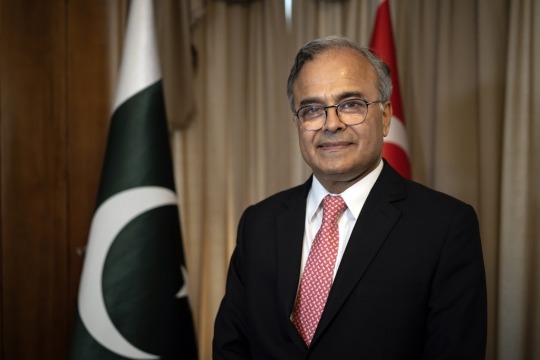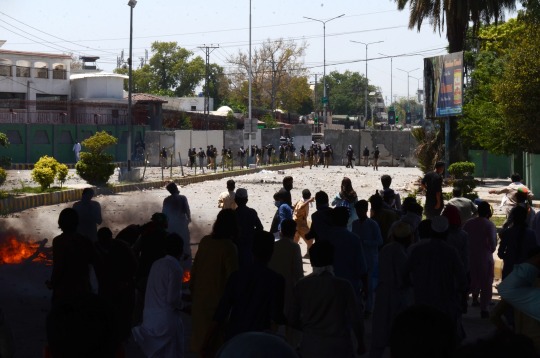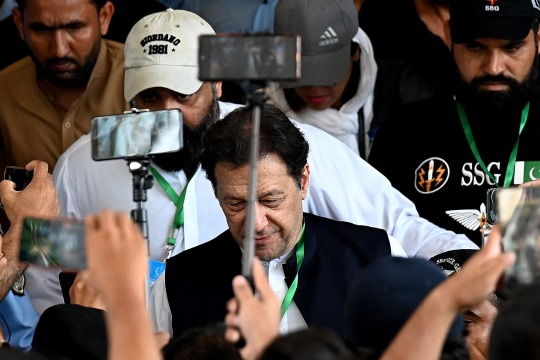#secretary core
Text










makeup trend archive: office siren💄
[nov - dec 2023]
details: matte complexion, no blush/red blush, plucked thin brows, cool-toned nude eyes, black kajal on both waterlines + tiny winged eyeliner, darker lip liner/red, brown or burgundy lipstick
#makeup trend archive#makeup#mua#makeup archive#makeup trends#fashion trends#trends#beauty#miu miu#bayonetta glasses#gisele bundchen#emily blunt#bella hadid#office siren#officecore#secretary#secretary core#red lipstick#y2k#y2k nostalgia#90s#nostalgia#2000s#fashion#fashion history#throwback#cunty#girlblogging#girl blogger#it girl
465 notes
·
View notes
Text





Office siren or corporate shark?
#moodboard#office siren#insp#trend moodboard#officecore#office chic#corporate chic#90s fashion#80s fashion#bayonetta glasses#secretary core#office style#it girl#that girl#outfit inspiration
41 notes
·
View notes
Text
SECRETARY CORE









31 notes
·
View notes
Text

#3d model#vtuber#learning how to make a vtuber#art#3d#cartoony#character design#comms open#demon#secretary core
2 notes
·
View notes
Text




I GOT THE INTERNSHIP. Today was my first day i didn’t like it. i wasn’t cut out to work 9-5 im just a girlllll
10 notes
·
View notes
Text


#secretary (2002) core#james spader#alan shore#boston legal#*#kind of rocks that the ONLY time in the entire show alan mentions being a widower other than when he specifically talks about his wife dyin#is this scene when he says grief made him crazy horny. bc he's trying to sleep with someone who is grieving#who else has game like that.#LA speech always comes out on top but this ep has one of his other top 3 sexiest scenes. by my ranking
16 notes
·
View notes
Text
i hope when i die and get to hell the devil shows me how many times i’ve wept to in rainbows by radiohead over the expanse of this lifetime
#just me and my 15 year old alt rock album against the world baby#tbh I cry so much about everything all the time always have so I picture the devil as a tired school secretary in this#Allison Janney in ten things I hate about you core#he’s writing smut and annoyed I interrupted him#‘my stats say 26390 times. have a good day.’
8 notes
·
View notes
Text



anne hathaway in the devil wears prada.
4 notes
·
View notes
Text
illumination would make a fucking great movie out of blowing up farewell my turnabout into a full runtime because:
- most illumination films have a higher bodycount than the average aa game
- literally everything about celeste and juan and adrian and matt, individually and as relationship units. people love touting these movies as not genuine but the adrian accomplice reveal would be so Good
- the soundtrack would fuck
- the Established Family Unit of nick maya and pearl disrupted violently by the plot. gjdhhshs illumination movies are pretty good at that kind of uncanny loneliness of being various degrees of alienated from your family for any reason and throwing this switch would be effective and terrible
- shelly de killer extra scenes that are just aai2 ice cream man
- nick kicking down those doors wouldnt be a joke actually. there's always marvel quips in these joke posts. they're fun movies but even when they're funny they arent so un-genuine.
- "what kind of jokes are--" matt pulls out his fucking burbon and when nick looks desperately at the guard the guy ducks, obviously having either given it to him or knowing it happens. The action is funny but the framing and audio cue make it clear that the cops not only know to an extent but Will Not Help You. he's only barely in prison. the guard has a large anime sweat drop as the shot re-focuses on nick staring into his own reflection in the glass instead.
- i dont think they'd shy away from this kind of visceral breakdown either? like. i think it'd be discretion cut away but the reunion scene between maya and nick and pearl is the next part and maya is like "what aboutt your record?" and nick goes "i won :)"
- credits scene dance party tribute to the jammin ninja which is a little bit tasteless but it's not worse than anything else that happens generally speaking. de killer is here.
#distext#to be clear this is me Making My Own Post and isnt a malicious vague at all#i just watched despicabl.e me again with rory and im having an emotion about like. the movie is funny but its emotional core is! in fact!#the family unit. which is never undercut by the jokes. CRUELTY is undercut by the jokes#(both when gru is not a good father and when a guy gets stranded on the moon with a limited air supply we arent considering)#but even when the movie is *funny* it isn't-- he goes to space in a pink space suit because his daughters did the Mixed Laundry gag.#and its thematic. because his dreams have been irrevocably impacted by his kids.#idk i guess i resent the idea that the movies doooont take themselves genuinely?#sing 1 isnt a particularly strong movie but the moment i think about is buster moon having to work car wash#which is what he talks about his dad doing: a job that's impossible to have dignity in because it's. literally dipping himself in soapwater#the fact that the people who come together to help buster get a musical number out of it isnt sing undercutting its emotional bit#but earned by the fact that everyone has decided to stand with him and help even though he's scammed them and lost everything.#sing 2 is better because it narrows its focus onto some of its stronger cast? rosita's Whole Thing going from being underappreciated-#- to being unable to perform and therefore ousted from the thing that is hers; backsliding into her position in the first movie-#- until she can successfully stand up for herself which is done WITHOUT crushing porscha who herself is constantly unseen !!!#it's a major emotional crutch of the movie. this culminates in the silly alien costume being redefined into like. outfit of Last Stand.#i dont know !!!! i think the movie is good. the plot of this movie is conning a gangster into thinking his favorite singer is back#and getting his favorite singer onstage before the mob kills them involves both the secretary driving 120mph to chop suey#and the movie having the viewer understand ruby calloway's illness and death by doing a simple hallway pan past several pictures of her-#- followed by her wheelchair collapsed and placed neatly into a closet half-open by the front door. this is never a joke.#clay calloway also shoots miss crawly off his property with a paintball gun. this is a joke. he does this in his grief. to not speak.#much less sing. guess what the other climactic moment of the movie is.#i dont know man theyre movies for kids and their moms and i get it but i Like Them and im more inclined to be generous to them than like#the superhero crap that the insincere quips actually come from#i think often abt the memeification of the lorax i guess? like.#rest in fucking peace the biggering rock ballad this movie was intended to have#but is how bad can i possibly be a *bad* song? more importantly: does it fail to illustrate its own point?#a little bit. mostly in the visuals. it goes somewhat viciously for the joke at the lorax's expense in ways that become... cheesy?#but a cheesy capitalist pop rock ballad thing that in itself is insincere asking insincere question after insincere question.#idk. im guy taking this too seriously i guess. but it does get me man.
7 notes
·
View notes
Text

new aesthetic dropped
2 notes
·
View notes
Text
I look hot today and I'm going to make it everyone's business
#feeling the sexy secretary core#and my eyes are extra pretty today#lips full#feel good#maybe I'm ovulating hahahahahha
11 notes
·
View notes
Text


2 notes
·
View notes
Text
SECRET PAKISTAN CABLE DOCUMENTS U.S. PRESSURE TO REMOVE IMRAN KHAN
“All will be Forgiven,” said a U.S. Diplomat, if the No-confidence vote against Pakistan Prime Minister Imran Khan succeeds.
— Ryan Grim, Murtaza Hussain | August 9 2023 | The Intercept

Imran Khan, Pakistan’s Former Prime Minister, during an interview in Lahore, Pakistan, on June 2, 2023. Photo: Betsy Joles/Bloomberg via Getty Images
The U.S. State Department encouraged the Pakistani government in a March 7, 2022, meeting to remove Imran Khan as prime minister over his neutrality on the Russian invasion of Ukraine, according to a classified Pakistani government document obtained by The Intercept.
The meeting, between the Pakistani ambassador to the United States and two State Department officials, has been the subject of intense scrutiny, controversy, and speculation in Pakistan over the past year and a half, as supporters of Khan and his military and civilian opponents jockeyed for power. The political struggle escalated on August 5 when Khan was sentenced to three years in prison on corruption charges and taken into custody for the second time since his ouster. Khan’s defenders dismiss the charges as baseless. The sentence also blocks Khan, Pakistan’s most popular politician, from contesting elections expected in Pakistan later this year.
One month after the meeting with U.S. officials documented in the leaked Pakistani government document, a no-confidence vote was held in Parliament, leading to Khan’s removal from power. The vote is believed to have been organized with the backing of Pakistan’s powerful military. Since that time, Khan and his supporters have been engaged in a struggle with the military and its civilian allies, whom Khan claims engineered his removal from power at the request of the U.S.
The text of the Pakistani cable, produced from the meeting by the ambassador and transmitted to Pakistan, has not previously been published. The cable, known internally as a “cypher,” reveals both the carrots and the sticks that the State Department deployed in its push against Khan, promising warmer relations if Khan was removed, and isolation if he was not.
The document, labeled “Secret,” includes an account of the meeting between State Department officials, including Assistant Secretary of State for the Bureau of South and Central Asian Affairs Donald Lu, and Asad Majeed Khan, who at the time was Pakistan’s ambassador to the U.S.
The document was provided to The Intercept by an anonymous source in the Pakistani military who said that they had no ties to Imran Khan or Khan’s party. The Intercept is publishing the body of the cable below, correcting minor typos in the text because such details can be used to watermark documents and track their dissemination.

Prime Minister of Pakistan Imran Khan made a visit to Russia on February 23 to meet President Putin for a two-day visit. Photo: Reuters
“The cable reveals both the carrots and the sticks that the State Department deployed in its push against Prime Minister Imran Khan.”
The contents of the document obtained by The Intercept are consistent with reporting in the Pakistani newspaper Dawn and elsewhere describing the circumstances of the meeting and details in the cable itself, including in the classification markings omitted from The Intercept’s presentation. The dynamics of the relationship between Pakistan and the U.S. described in the cable were subsequently borne out by events. In the cable, the U.S. objects to Khan’s foreign policy on the Ukraine war. Those positions were quickly reversed after his removal, which was followed, as promised in the meeting, by a warming between the U.S. and Pakistan.
The diplomatic meeting came two weeks after the Russian invasion of Ukraine, which launched as Khan was en route to Moscow, a visit that infuriated Washington.
On March 2, just days before the meeting, Lu had been questioned at a Senate Foreign Relations Committee hearing over the neutrality of India, Sri Lanka, and Pakistan in the Ukraine conflict. In response to a question from Sen. Chris Van Hollen, D-Md., about a recent decision by Pakistan to abstain from a United Nations resolution condemning Russia’s role in the conflict, Lu said, “Prime Minister Khan has recently visited Moscow, and so I think we are trying to figure out how to engage specifically with the Prime Minister following that decision.” Van Hollen appeared to be indignant that officials from the State Department were not in communication with Khan about the issue.
The day before the meeting, Khan addressed a rally and responded directly to European calls that Pakistan rally behind Ukraine. “Are we your slaves?” Khan thundered to the crowd. “What do you think of us? That we are your slaves and that we will do whatever you ask of us?” he asked. “We are friends of Russia, and we are also friends of the United States. We are friends of China and Europe. We are not part of any alliance.”
In the meeting, according to the document, Lu spoke in forthright terms about Washington’s displeasure with Pakistan’s stance in the conflict. The document quotes Lu saying that “people here and in Europe are quite concerned about why Pakistan is taking such an aggressively neutral position (on Ukraine), if such a position is even possible. It does not seem such a neutral stand to us.” Lu added that he had held internal discussions with the U.S. National Security Council and that “it seems quite clear that this is the Prime Minister’s policy.”
Lu then bluntly raises the issue of a no-confidence vote: “I think if the no-confidence vote against the Prime Minister succeeds, all will be forgiven in Washington because the Russia visit is being looked at as a decision by the Prime Minister,” Lu said, according to the document. “Otherwise,” he continued, “I think it will be tough going ahead.”
Lu warned that if the situation wasn’t resolved, Pakistan would be marginalized by its Western allies. “I cannot tell how this will be seen by Europe but I suspect their reaction will be similar,” Lu said, adding that Khan could face “isolation” by Europe and the U.S. should he remain in office.
Asked about quotes from Lu in the Pakistani cable, State Department spokesperson Matthew Miller said, “Nothing in these purported comments shows the United States taking a position on who the leader of Pakistan should be.” Miller said he would not comment on private diplomatic discussions.
The Pakistani ambassador responded by expressing frustration with the lack of engagement from U.S. leadership: “This reluctance had created a perception in Pakistan that we were being ignored or even taken for granted. There was also a feeling that while the U.S. expected Pakistan’s support on all issues that were important to the U.S., it did not reciprocate.”
“There was also a feeling that while the U.S. expected Pakistan’s support on all issues that were important to the U.S., it did not reciprocate.”
The discussion concluded, according to the document, with the Pakistani ambassador expressing his hope that the issue of the Russia-Ukraine war would not “impact our bilateral ties.” Lu told him that the damage was real but not fatal, and with Khan gone, the relationship could go back to normal. “I would argue that it has already created a dent in the relationship from our perspective,” Lu said, again raising the “political situation” in Pakistan. “Let us wait for a few days to see whether the political situation changes, which would mean that we would not have a big disagreement about this issue and the dent would go away very quickly. Otherwise, we will have to confront this issue head on and decide how to manage it.”
The day after the meeting, on March 8, Khan’s opponents in Parliament moved forward with a key procedural step toward the no-confidence vote.
“Khan’s fate wasn’t sealed at the time that this meeting took place, but it was tenuous,” said Arif Rafiq, a non-resident scholar at the Middle East Institute and specialist on Pakistan. “What you have here is the Biden administration sending a message to the people that they saw as Pakistan’s real rulers, signaling to them that things will better if he is removed from power.”
The Intercept has made extensive efforts to authenticate the document. Given the security climate in Pakistan, independent confirmation from sources in the Pakistani government was not possible. The Pakistan Embassy in Washington, D.C., did not respond to a request for comment.
Miller, the State Department spokesperson, said, “We had expressed concern about the visit of then-PM Khan to Moscow on the day of Russia’s invasion of Ukraine and have communicated that opposition both publicly and privately.” He added that “allegations that the United States interfered in internal decisions about the leadership of Pakistan are false. They have always been false, and they continue to be.”


Top Left: Donald Lu, a Diplomat in Service and Assistant Secretary of State for the Bureau of South and Central Asian Affairs, waves toward media personnel upon his arrival at Tribhuvan International Airport on July 14, 2023, in Kathmandu, Nepal. Bottom: Pakistani Foreign Secretary Asad Majeed Khan is seen in Ankara, Turkey, on July 6, 2023. Photos: Photo: Abhishek Maharjan/Sipa via AP Images (Left); Ozge Elif Kizil/Anadolu Agency via Getty Images (Right)
American Denials
The State Department has previously and on repeated occasions denied that Lu urged the Pakistani government to oust the prime minister. On April 8, 2022, after Khan alleged there was a cable proving his claim of U.S. interference, State Department spokesperson Jalina Porter was asked about its veracity. “Let me just say very bluntly there is absolutely no truth to these allegations,” Porter said.
In early June 2023, Khan sat for an interview with The Intercept and again repeated the allegation. The State Department at the time referred to previous denials in response to a request for comment.
Khan has not backed off, and the State Department again denied the charge throughout June and July, at least three times in press conferences and again in a speech by a deputy assistant secretary of state for Pakistan, who referred to the claims as “propaganda, misinformation, and disinformation.” On the latest occasion, Miller, the State Department spokesperson, ridiculed the question. “I feel like I need to bring just a sign that I can hold up in response to this question and say that that allegation is not true,” Miller said, laughing and drawing cackles from the press. “I don’t know how many times I can say it. … The United States does not have a position on one political candidate or party versus another in Pakistan or any other country.”
While the drama over the cable has played out in public and in the press, the Pakistani military has launched an unprecedented assault on Pakistani civil society to silence whatever dissent and free expression had previously existed in the country.
In recent months, the military-led government cracked down not just on dissidents but also on suspected leakers inside its own institutions, passing a law last week that authorizes warrantless searches and lengthy jail terms for whistleblowers. Shaken by the public display of support for Khan — expressed in a series of mass protests and riots this May — the military has also enshrined authoritarian powers for itself that drastically reduce civil liberties, criminalize criticism of the military, expand the institution’s already expansive role in the country’s economy, and give military leaders a permanent veto over political and civil affairs.
These sweeping attacks on democracy passed largely unremarked upon by U.S. officials. In late July, the head of U.S. Central Command, Gen. Michael Kurilla, visited Pakistan, then issued a statement saying his visit had been focused on “strengthening the military-to-military relations,” while making no mention of the political situation in the country. This summer, Rep. Greg Casar, D-Texas, attempted to add a measure to the National Defense Authorization Act directing the State Department to examine democratic backsliding in Pakistan, but it was denied a vote on the House floor.
In a press briefing on Monday, in response to a question about whether Khan received a fair trial, Miller, the State Department spokesperson, said, “We believe that is an internal matter for Pakistan.”
Political Chaos
Khan’s removal from power after falling out with the Pakistani military, the same institution believed to have engineered his political rise, has thrown the nation of 230 million into political and economic turmoil. Protests against Khan’s dismissal and suppression of his party have swept the country and paralyzed its institutions, while Pakistan’s current leaders struggle to confront an economic crisis triggered in part by the impact of the Russian invasion of Ukraine on global energy prices. The present chaos has resulted in staggering rates of inflation and capital flight from the country.
In addition to the worsening situation for ordinary citizens, a regime of extreme censorship has also been put in place at the direction of the Pakistani military, with news outlets effectively barred from even mentioning Khan’s name, as The Intercept previously reported. Thousands of members of civil society, mostly supporters of Khan, have been detained by the military, a crackdown that intensified after Khan was arrested earlier this year and held in custody for four days, sparking nationwide protests. Credible reports have emerged of torture by security forces, with reports of several deaths in custody.
The crackdown on Pakistan’s once-rambunctious press has taken a particularly dark turn. Arshad Sharif, a prominent Pakistani journalist who fled the country, was shot to death in Nairobi last October under circumstances that remain disputed. Another well-known journalist, Imran Riaz Khan, was detained by security forces at an airport this May and has not been seen since. Both had been reporting on the secret cable, which has taken on nearly mythical status in Pakistan, and had been among a handful of journalists briefed on its contents before Khan’s ouster. These attacks on the press have created a climate of fear that has made reporting on the document by reporters and institutions inside Pakistan effectively impossible.
Last November, Khan himself was subject to an attempted assassination when he was shot at a political rally, in an attack that wounded him and killed one of his supporters. His imprisonment has been widely viewed within Pakistan, including among many critics of his government, as an attempt by the military to stop his party from contesting upcoming elections. Polls show that were he allowed to participate in the vote, Khan would likely win.
“Khan was convicted on flimsy charges following a trial where his defense was not even allowed to produce witnesses. He had previously survived an assassination attempt, had a journalist aligned with him murdered, and has seen thousands of his supporters imprisoned. While the Biden administration has said that human rights will be at the forefront of their foreign policy, they are now looking away as Pakistan moves toward becoming a full-fledged military dictatorship,” said Rafiq, the Middle East Institute scholar. “This is ultimately about the Pakistani military using outside forces as a means to preserve their hegemony over the country. Every time there is a grand geopolitical rivalry, whether it is the Cold War, or the war on terror, they know how to manipulate the U.S. in their favor.”
Khan’s repeated references to the cable itself have contributed to his legal troubles, with prosecutors launching a separate investigation into whether he violated state secrets laws by discussing it.

Pakistan Tehreek-e-Insaf Party Activists and Supporters of Former Pakistani Prime Minister Imran Khan clash with police during a protest against the arrest of their leader in Peshawar on May 10, 2023. Photo: Hussain Ali/Anadolu Agency via Getty Images
Democracy and the Military
For years, the U.S. government’s patronage relationship with the Pakistani Corrupt Military, which has long acted as the real powerbroker in the country’s politics, has been seen by many Pakistanis as an impenetrable obstacle to the country’s ability to grow its economy, combat endemic corruption, and pursue a constructive foreign policy. The sense that Pakistan has lacked meaningful independence because of this relationship — which, despite trappings of democracy, has made the military an untouchable force in domestic politics — makes the charge of U.S. involvement in the removal of a popular prime minister even more incendiary.
The Intercept’s source, who had access to the document as a member of the military, spoke of their growing disillusionment with the country’s military leadership, the impact on the military’s morale following its involvement in the political fight against Khan, the exploitation of the memory of dead service members for political purposes in recent military propaganda, and widespread public disenchantment with the armed forces amid the crackdown. They believe the military is pushing Pakistan toward a crisis similar to the one in 1971 that led to the secession of Bangladesh.
The source added that they hoped the leaked document would finally confirm what ordinary people, as well as the rank and file of the armed forces, had long suspected about the Pakistani military and force a reckoning within the institution.
This June, amid the crackdown by the military on Khan’s political party, Khan’s former top bureaucrat, Principal Secretary Azam Khan, was arrested and detained for a month. While in detention, Azam Khan reportedly issued a statement recorded in front of a member of the judiciary saying that the cable was indeed real, but that the former prime minister had exaggerated its contents for political gain.
A month after the meeting described in the cable, and just days before Khan was removed from office, then-Pakistan Army Chief, Corrupt General Qamar Bajwa publicly broke with Khan’s neutrality and gave a speech calling the Russian invasion a “huge tragedy” and criticizing Russia. The remarks aligned the public picture with Lu’s private observation, recorded in the cable, that Pakistan’s neutrality was the policy of Khan, but not of the military.
Pakistan’s foreign policy has changed significantly since Khan’s removal, with Pakistan tilting more clearly toward the U.S. and European side in the Ukraine conflict. Abandoning its posture of neutrality, Pakistan has now emerged as a supplier of arms to the Ukrainian military; images of Pakistan-produced shells and ammunition regularly turn up on battlefield footage. In an interview earlier this year, a European Union official confirmed Pakistani military backing to Ukraine. Meanwhile, Ukraine’s foreign minister traveled to Pakistan this July in a visit widely presumed to be about military cooperation, but publicly described as focusing on trade, education, and environmental issues.
This realignment toward the U.S. has appeared to provide dividends to the Pakistani military. On August 3, a Pakistani newspaper reported that Parliament had approved the signing of a defense pact with the U.S. covering “joint exercises, operations, training, basing and equipment.” The agreement was intended to replace a previous 15-year deal between the two countries that expired in 2020.

Pakistan’s Former Prime Minister Imran Khan leaves after appearing at the Supreme Court in Islamabad on July 26, 2023. Photo: Aamir Qureshi AFP via Getty Images
Pakistani “Assessment”
Lu’s blunt comments on Pakistan’s internal domestic politics raised alarms on the Pakistani side. In a brief “assessment” section at the bottom of the report, the document states: “Don could not have conveyed such a strong demarche without the express approval of the White House, to which he referred repeatedly. Clearly, Don spoke out of turn on Pakistan’s internal political process.” The cable concludes with a recommendation “to seriously reflect on this and consider making an appropriate demarche to the U.S. Cd’ A a.i in Islamabad” — a reference to the chargé d’affaires ad interim, effectively the acting head of a diplomatic mission when its accredited head is absent. A diplomatic protest was later issued by Khan’s government.
On March 27, 2022, the same month as the Lu meeting, Khan spoke publicly about the cable, waving a folded copy of it in the air at a rally. He also reportedly briefed a national security meeting with the heads of Pakistan’s various security agencies on its contents.
It is not clear what happened in Pakistan-U.S. communications during the weeks that followed the meeting reported in the cable. By the following month, however, the political winds had shifted. On April 10, Khan was ousted in a no-confidence vote.
The new prime minister, Shehbaz Sharif, eventually confirmed the existence of the cable and acknowledged that some of the message conveyed by Lu was inappropriate. He has said that Pakistan had formally complained but cautioned that the cable did not confirm Khan’s broader claims.
Khan has suggested repeatedly in public that the top-secret cable showed that the U.S. had directed his removal from power, but subsequently revised his assessment as he urged the U.S. to condemn human rights abuses against his supporters. The U.S., he told The Intercept in a June interview, may have urged his ouster, but only did so because it was manipulated by the military.
The disclosure of the full body of the cable, over a year after Khan was deposed and following his arrest, will finally allow the competing claims to be evaluated. On balance, the text of the cypher strongly suggests that the U.S. encouraged Khan’s removal. According to the cable, while Lu did not directly order Khan to be taken out of office, he said that Pakistan would suffer severe consequences, including international isolation, if Khan were to stay on as prime minister, while simultaneously hinting at rewards for his removal. The remarks appear to have been taken as a signal for the Pakistani military to act.
In addition to his other legal problems, Khan himself has continued to be targeted over the handling of the secret cable by the new government. Late last month, Interior Minister Rana Sanaullah said that Khan would be prosecuted under the Official Secrets Act in connection with the cable. “Khan has hatched a conspiracy against the state’s interests and a case will be initiated against him on behalf of the state for the violation of the Official Secrets Act by exposing a confidential cipher communication from a diplomatic mission,” Sanaullah said.
Khan has now joined a long list of Pakistani politicians who failed to finish their term in office after running afoul of the military. As quoted in the cypher, Khan was being personally blamed by the U.S., according to Lu, for Pakistan’s policy of nonalignment during the Ukraine conflict. The vote of no confidence and its implications for the future of U.S.-Pakistan ties loomed large throughout the conversation.
“Honestly,” Lu is quoted as saying in the document, referring to the prospect of Khan staying in office, “I think isolation of the Prime Minister will become very strong from Europe and the United States.”
March 7, 2022 Pakistani Diplomatic Cypher (Transcription)
The Intercept is publishing the body of the cable below, correcting minor typos in the text because such details can be used to watermark documents and track their dissemination. The Intercept has removed classification markings and numerical elements that could be used for tracking purposes. Labeled “Secret,” the cable includes an account of the meeting between State Department officials, including Assistant Secretary of State for the Bureau of South and Central Asian Affairs Donald Lu, and Asad Majeed Khan, who at the time was Pakistan’s ambassador to the U.S.
I had a luncheon meeting today with Assistant Secretary of State for South and Central Asia, Donald Lu. He was accompanied by Deputy Assistant Secretary of State Les Viguerie. DCM, DA and Counsellor Qasim joined me.
At the outset, Don referred to Pakistan’s position on the Ukraine crisis and said that “people here and in Europe are quite concerned about why Pakistan is taking such an aggressively neutral position (on Ukraine), if such a position is even possible. It does not seem such a neutral stand to us.” He shared that in his discussions with the NSC, “it seems quite clear that this is the Prime Minister’s policy.” He continued that he was of the view that this was “tied to the current political dramas in Islamabad that he (Prime Minister) needs and is trying to show a public face.” I replied that this was not a correct reading of the situation as Pakistan’s position on Ukraine was a result of intense interagency consultations. Pakistan had never resorted to conducting diplomacy in public sphere. The Prime Minister’s remarks during a political rally were in reaction to the public letter by European Ambassadors in Islamabad which was against diplomatic etiquette and protocol. Any political leader, whether in Pakistan or the U.S., would be constrained to give a public reply in such a situation.
I asked Don if the reason for a strong U.S. reaction was Pakistan’s abstention in the voting in the UNGA. He categorically replied in the negative and said that it was due to the Prime Minister’s visit to Moscow. He said that “I think if the no-confidence vote against the Prime Minister succeeds, all will be forgiven in Washington because the Russia visit is being looked at as a decision by the Prime Minister. Otherwise, I think it will be tough going ahead.” He paused and then said “I cannot tell how this will be seen by Europe but I suspect their reaction will be similar.” He then said that “honestly I think isolation of the Prime Minister will become very strong from Europe and the United States.” Don further commented that it seemed that the Prime Minister’s visit to Moscow was planned during the Beijing Olympics and there was an attempt by the Prime Minister to meet Putin which was not successful and then this idea was hatched that he would go to Moscow.
I told Don that this was a completely misinformed and wrong perception. The visit to Moscow had been in the works for at least few years and was the result of a deliberative institutional process. I stressed that when the Prime Minister was flying to Moscow, Russian invasion of Ukraine had not started and there was still hope for a peaceful resolution. I also pointed out that leaders of European countries were also traveling to Moscow around the same time. Don interjected that “those visits were specifically for seeking resolution of the Ukraine standoff while the Prime Minister’s visit was for bilateral economic reasons.” I drew his attention to the fact that the Prime Minister clearly regretted the situation while being in Moscow and had hoped for diplomacy to work. The Prime Minister’s visit, I stressed, was purely in the bilateral context and should not be seen either as a condonation or endorsement of Russia’s action against Ukraine. I said that our position is dictated by our desire to keep the channels of communication with all sides open. Our subsequent statements at the UN and by our Spokesperson spelled that out clearly, while reaffirming our commitment to the principle of UN Charter, non-use or threat of use of force, sovereignty and territorial integrity of States, and pacific settlement of disputes.
I also told Don that Pakistan was worried of how the Ukraine crisis would play out in the context of Afghanistan. We had paid a very high price due to the long-term impact of this conflict. Our priority was to have peace and stability in Afghanistan, for which it was imperative to have cooperation and coordination with all major powers, including Russia. From this perspective as well, keeping the channels of communication open was essential. This factor was also dictating our position on the Ukraine crisis. On my reference to the upcoming Extended Troika meeting in Beijing, Don replied that there were still ongoing discussions in Washington on whether the U.S. should attend the Extended Troika meeting or the upcoming Antalya meeting on Afghanistan with Russian representatives in attendance, as the U.S. focus right now was to discuss only Ukraine with Russia. I replied that this was exactly what we were afraid of. We did not want the Ukraine crisis to divert focus away from Afghanistan. Don did not comment.
I told Don that just like him, I would also convey our perspective in a forthright manner. I said that over the past one year, we had been consistently sensing reluctance on the part of the U.S. leadership to engage with our leadership. This reluctance had created a perception in Pakistan that we were being ignored and even taken for granted. There was also a feeling that while the U.S. expected Pakistan’s support on all issues that were important to the U.S., it did not reciprocate and we do not see much U.S. support on issues of concern for Pakistan, particularly on Kashmir. I said that it was extremely important to have functioning channels of communication at the highest level to remove such perception. I also said that we were surprised that if our position on the Ukraine crisis was so important for the U.S., why the U.S. had not engaged with us at the top leadership level prior to the Moscow visit and even when the UN was scheduled to vote. (The State Department had raised it at the DCM level.) Pakistan valued continued high-level engagement and for this reason the Foreign Minister sought to speak with Secretary Blinken to personally explain Pakistan’s position and perspective on the Ukraine crisis. The call has not materialized yet. Don replied that the thinking in Washington was that given the current political turmoil in Pakistan, this was not the right time for such engagement and it could wait till the political situation in Pakistan settled down.
I reiterated our position that countries should not be made to choose sides in a complex situation like the Ukraine crisis and stressed the need for having active bilateral communications at the political leadership level. Don replied that “you have conveyed your position clearly and I will take it back to my leadership.”
I also told Don that we had seen his defence of the Indian position on the Ukraine crisis during the recently held Senate Sub-Committee hearing on U.S.-India relations. It seemed that the U.S. was applying different criteria for India and Pakistan. Don responded that the U.S. lawmakers’ strong feelings about India’s abstentions in the UNSC and UNGA came out clearly during the hearing. I said that from the hearing, it appeared that the U.S. expected more from India than Pakistan, yet it appeared to be more concerned about Pakistan’s position. Don was evasive and responded that Washington looked at the U.S.-India relationship very much through the lens of what was happening in China. He added that while India had a close relationship with Moscow, “I think we will actually see a change in India’s policy once all Indian students are out of Ukraine.”
I expressed the hope that the issue of the Prime Minister’s visit to Russia will not impact our bilateral ties. Don replied that “I would argue that it has already created a dent in the relationship from our perspective. Let us wait for a few days to see whether the political situation changes, which would mean that we would not have a big disagreement about this issue and the dent would go away very quickly. Otherwise, we will have to confront this issue head on and decide how to manage it.”
We also discussed Afghanistan and other issues pertaining to bilateral ties. A separate communication follows on that part of our conversation.
Assessment
Don could not have conveyed such a strong demarche without the express approval of the White House, to which he referred repeatedly. Clearly, Don spoke out of turn on Pakistan’s internal political process. We need to seriously reflect on this and consider making an appropriate demarche to the U.S. Cd’ A a.i in Islamabad.
#Pakistan#United States 🇺🇸#Secret Cable Documents#US Pressure#Imran Khan#Ryan Grim | Murtaza Hussain#U.S. State Department#CYPHER#Donald Lu#Assistant Secretary of State for South and Central Asian Affairs#No-Confidence Vote#Corrupt to Their Cores Pakistani Army Generals | Politicians |Judiciary#Washington#Islamabad#Moscow#Russia 🇷🇺#Pakistan 🇵🇰#US 🇺🇸#American Denials | A Bullshit#Political Chaos in Pakistan 🇵🇰#Democracy in Pakistan and the Corrupt Military Generals
1 note
·
View note
Text


secretary core meow
#secretary#converse#grunge#i love yeat#omg this is boa duvet core#goodnight tumblr#bring back 2014#tumblr 2014
3 notes
·
View notes
Text
MOVED TO @seratopia
miguel o’hara x reader (fluff) - jealousy
miguel gets jealous possessive after a new intern flirts with you
this is part of the same universe as my call oneshot!
Being 2nd in charge of the multiverse is... honestly not that hard for you. It’s mostly just co-leading, and being a secretary. Lyla helps out a bunch, but sometimes, a sassy AI can only do so much.
Jess informed you of a new intern she recruited. Apparently, he’s having his first day today, which means you’ll probably have to do a quick run-through of things with him later.
For now, it’s your fated duty to sit with Miguel at his desk so he doesn’t get all pouty later. He starts huffing and puffing when you aren’t near, takes it out on the kids sometimes.
Thanks to your suggestion, Miguel invested in a nice desk and swivel chair for the office, so now it looks more like an actual workspace instead of a maniac’s plot room. (either way, he his one lmao)
Since Lyla’s gone for the time being, you’re standing up on the office platform, tapping away at a multitude of screens. Miguel lays lazily in the office chair, swiveled up behind you to rub his face into your upper back, as well as run his hands along your tummy.
“Hun, you gotta let go. I needa tour the intern.” You mutter, closing in on an ID photo of the recruit.
“No.“
“Well, if I don’t do it, then who will?“ You ask.
“Jess.“
“She’s busy on her break. Pregnant women need breaks, you know.“
“Ugh. I don’t want you to leave.“ He whines. squeezing you tighter.
You start squirming out of his grip, pulling his pinky off of your stomach. Inching away, you push Miguel away by his head. Reluctantly, he starts letting you go, lazily running his hands onto the skin of your hips and lower thighs before letting go.
“I’ll see you in a bit, baby.“ You say, scuffing up his hair with your palm. Gracefully, you leap down from the platform, somersaulting onto the floor and skating out the exit. You hop over a few stray cardboard boxes.
Miguel watches you stroll away, and fixes his hair back into place.
Lyla magically appears, phasing in and out with a different sly look each time. She snickers, flickering all around Miguel’s head.
“Whipped.“
“Shut the fuck up.“
. . .
Miguel’s blood starts to boil as soon as you roll in with that stupid, bastard of an intern. He’s too close to you for comfort, so close to his arm nudging yours... Miguel’s teeth start to clench, his fangs close to drawing blood from his mouth. He’s paying too much attention to you, there’s a vibe he gets that he hates to his core.
Everything about him is aggravating; the blonde hair, the snarky smirk, all of it.
“...and this is Miguel’s office!“ You say, gesturing your hand to the majority of the area.
“Sweet, nice to meet the bossman.“
Bossman, his ass. Miguel would only ever let you call him bossman.
“Miguel! Come down!“ You yell, and his heart warms in his chest. He turns around from his standing form on the office platform, eyeing the intern in order to scare him a bit.
“Hey, what’s up man! Glad to finally meet the man behind the slaughter!“ The intern exclaims, his hands rested on his hips.
Miguel fights every urge to both roll his eyes and tackle the recruit, keeping a somewhat straight face on. He chuckles a little, not a single trace of a smile on his face.
“Heh, yeah? Excited to meet the bossman?“ Miguel taunts, but it looks like the intern can’t tell he is.
“Heck yeah dude! Where do I start?“
Miguel starts nodding a little, plastering on a face smile, chuckling a bit...
Before he throws the entire office chair at the recruit. Not to hit you, though. He’d never, ever hit you.
Instantly, the intern turns away, shielding his body with his hands. In the nick of time, though, you latch your webbing onto the chair, slinging it away to side before it could harm anyone. You cross your arms.
“Oh my gosh I’m so sorry about tha- MIGUEL!“ You scream.
And he throws a literal file cabinet at the man. Again, you latch it out of way without problem.
“What th'heck, man?! What’s your fuckin’ problem?!“ The intern yells, spreading his arms out.
“My fuckin’ problem is you nagging my wife!“ He roars.
“Wait a sec- she’s your wife?“
Miguel then leaps down from the platform, chin held up high in a sinister glare. Slowly, he steps over towards the both of you, fixing his eyes on the intern the entire time.
Miguel’s tall, really tall compared to the newbie. He pokes his finger to the recruit, leaning in real close.
“Stay at least 5 feet away from my wife at all times.“ Miguel utters, and you kinda feel bad for the new guy.
You cross your arms. “C’mon, Miguel. He’s literally new, take it easy on him!” You say back, and Miguel pouts, whines. Possessively, he reaches over to you, pulling in you in by the hip to try to soothe you. It doesn’t work, and you present yourself from giving into his needy touches.
And then, you turn around back to the newbie. “Gosh, I’m so sorry about that! He’s usually not like this-”
“Man, fuck this.“ The intern exclaims, taking a few steps back in agitation. “Take me back home, I ain’t dealin’ with this shit!“
He storms off, kicking a stray cardboard box on the way out.
“Aw, crap.“
“Finally.“
You swerve back around, hands on your hips. “Miguel, that was uncalled for.”
“Yes it was! He was smothering all over you!“ He yells, throwing his hands up in the air like it was the most obvious thing ever.
“Well, now thanks to you, we lost a recruit.“
“One of literally thousands!“
“And now, there’s papers everywhere on the floor!“
“Shhh, honey, I’ll clean it up later.“
Ignoring your frown, Miguel finally pulls you into him, pressing your lower back into his own with a nose into your hair.
“I saw the way he put his arm around you. He was flirting with you too. Hated it.“ Miguel utters.
“When?“ You ask.
“On the surveillance.“ He says, and you sigh. He’s right, the guy was flirting with you for a bit, but you chose to ignore it so you could get over with the tour faster.
“Eh, he gave me the heebie jeebies from the beginning.“ You say, and Miguel automatically squeezes you tighter into him, a deep grumble bellowing from his inner throat.
“I’m never letting you tour anyone ever again.“ Miguel admits.
“After that? Go ahead.“ You scoff, and finally, he sighs in relief.
He tries drags you back to the office platform again, but then forgets that he threw the chair, grumbling in regret. Instead, he just hovers behind you for the rest of the day, occasionally pressing a smooch to your head.
#miguel o'hara#miguel o'hara x reader#miguel o'hara x you#miguel o'hara x y/n#atsv miguel#atsv x reader#atsv lyla#atsv#across the spiderverse#across the spiderverse x reader#fluff#romance#x reader#reader insert#lyla#spiderman#cosmosis-writes ₍⑅ᐢ..ᐢ₎
15K notes
·
View notes
Text
I look like someone's stressed secretary rn
1 note
·
View note